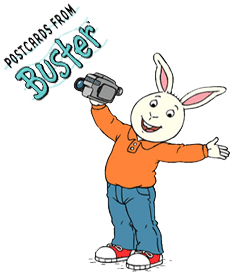
"I had a lot of faith in them to do the right thing and to give a voice to people who I feel are underrepresented in the media," she says, adding, "As a teacher and as a parent and as a taxpayer, I feel betrayed by Secretary Spellings." One of the moms, Tracy Harris, sees herself as a longtime PBS viewer done wrong. Consider PBS's own excuse for yanking the episode: It was deemed "sensitive in today's political climate," a spokeswoman was quoted as saying. Writing on his Web site that "the homosexual community has long used PBS.to promote their agenda," he hails Spellings "for her bold stand."īut what, to some, seems a bold stand is, to others, just pandering to a strident pressure group. He warns that it's all part of a crusade "to promote homosexual ideas and purposes." Donald Wildmon, head of the American Family Association, is sounding the same alarm. But he hasn't backed down from his assertion that a kid-targeted video starring SpongeBob and dozens of other cartoon characters has a more sinister motive than simply preaching diversity. Recently he has emphatically denied ever calling SpongeBob SquarePants gay (you almost expect him to proclaim, "Some of my best friends are sponges"). Granted, even Dobson draws the line on his character attacks. As usual, information is a threat to blind prejudice. It might be tricky, then, to convince a child who's "exposed to the lifestyles portrayed in this episode" that these women should be demonized for being who they are. They're awfully hard to distinguish from acceptable folks. The episode's two couples-Karen and Gillian, and their friends Tracy and Gina-come across as perilously likable people and loving parents. The danger, such as it is, lies elsewhere. Of course, no child watching this episode is any more likely to be brainwashed into becoming gay than into copying Buster and growing rabbit ears. "At its heart, the issue before us is the 'sexual reorientation' and brainwashing of children by homosexual advocacy groups," Dobson wrote on his Web site. (The Department of Education anteed up $5 million, two thirds of the budget for the series's 40 episodes.) "Many parents would not want their young children exposed to the lifestyles portrayed in this episode." Focus on the Family founder James Dobson agrees. "Congress's and the department's purpose in funding this programming certainly was not to introduce this kind of subject matter to children," Spellings wrote PBS head Pat Mitchell. And no one breathes the L word.īut by daring to include two of the nation's 168,000 gay-parented households (joining Pentecostal Christians, Muslims, and Mormons among those represented on the series), Buster was busted. When one little girl refers to her mother and stepmother, Buster remarks, "That's a lot of moms!" Nothing more on the subject is said or done, however. This detail scarcely escapes Buster's notice. But glimpsed as well are the parents, two couples who seem altogether unremarkable.

As usual, this episode, filmed last March, centers on youngsters.

There he visited a group of cute kids who ride bikes, jump in the hay, make chocolate chip cookies, cozy up to a bonfire, and show him how syrup begins as sap from maple trees. Go figure! This episode is pretty typical of Postcards From Buster, a gentle, informative series about a camcorder-toting cartoon bunny who explores different cultures and communities, then reports back to his friends at home (as well as to his 4- to 8-year-old audience) through live-action video "postcards" showing the people he meets.įor "Sugartime!" (which refers not to sex, gay or straight, but to maple sugaring), Buster went to Vermont. I popped it in my VCR, pulled down the shades, and took a peek. Education secretary Margaret Spellings upbraided PBS for spending tax dollars to make the episode, titled "Sugartime!" Then PBS, while denying it was caving to her pressure, displayed all the signs of caving with the announcement that it wouldn't distribute "Sugartime!" to its 349 stations.īut thanks to series producer WGBH (which is providing the episode to any PBS stations that want to air it), I had scored a copy. The fuss over this episode of Postcards From Buster-you know, with the lesbian mothers-had me nervous it might be a junior version of The L Word.

If the tape from WGBH had come in a plain brown wrapper, I wouldn't have been surprised, says Associated Press reporter Frazier Moore.


 0 kommentar(er)
0 kommentar(er)
